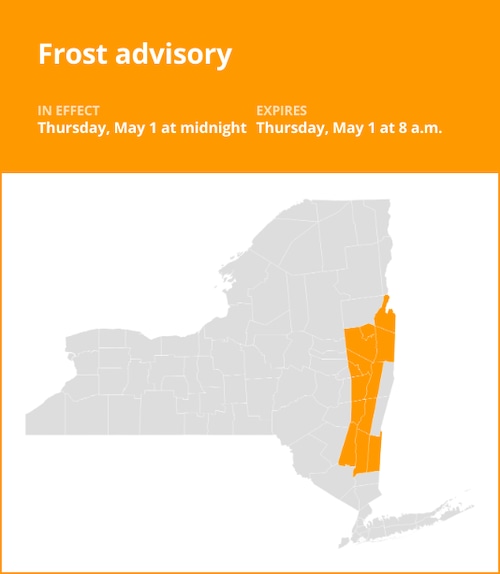Understanding the Weather in New York: Seasonal Changes and Frost Advisories
Staying informed about the weather in New York is vital for residents and visitors alike. From hot summer days to unexpected spring frosts, the climate in New York can change rapidly. Knowing what to expect helps you plan your activities and protect your property, especially during transitional seasons.

Current Weather Trends in New York
New York experiences significant fluctuations in temperature during spring. After enjoying record-breaking warm days, residents often witness sudden cool downs. Recently, cities like Syracuse reported temperatures dropping sharply after a brief warm spell. Such changes can surprise even the most experienced locals. Learn more about these rapid shifts in local weather patterns and temperature records.
What Frost Advisories Mean for New York
Frost advisories are a regular part of weather updates in New York, especially during spring. The National Weather Service issues these advisories when temperatures are expected to fall into the low to mid-30s Fahrenheit. Frost can form overnight, potentially damaging sensitive vegetation. Counties across upstate and central New York, including Wayne, Oswego, and Ontario, are frequently affected. According to a recent report, gardeners and farmers should take steps to cover their crops or move sensitive plants indoors.
Protecting Plants and Property During Frost Events
When a frost advisory is announced, simple steps can make a significant difference. The National Weather Service recommends covering outdoor plants before sunset to retain heat. Bringing smaller or potted plants inside is also effective. In some cases, frost is severe enough to end the local growing season, known as a "killing frost." Advance Local Weather Alerts suggests always monitoring local forecasts and being proactive during advisory periods.
Tips for Staying Ahead of the Weather in New York
- Regularly check the latest weather New York forecasts from reliable sources.
- Protect sensitive outdoor vegetables and flowers as the temperature drops.
- Postpone planting frost-sensitive crops until after the final advisory has passed.
- Use frost cloths or covers to shield your garden overnight.
Conclusion
New York’s climate keeps everyone on their toes, especially during the transition from winter to spring. Staying up to date with the weather in New York can help prevent costly damage and keep your home and garden safe. For more detailed updates, always refer to trusted sources and act promptly when advisories are issued.